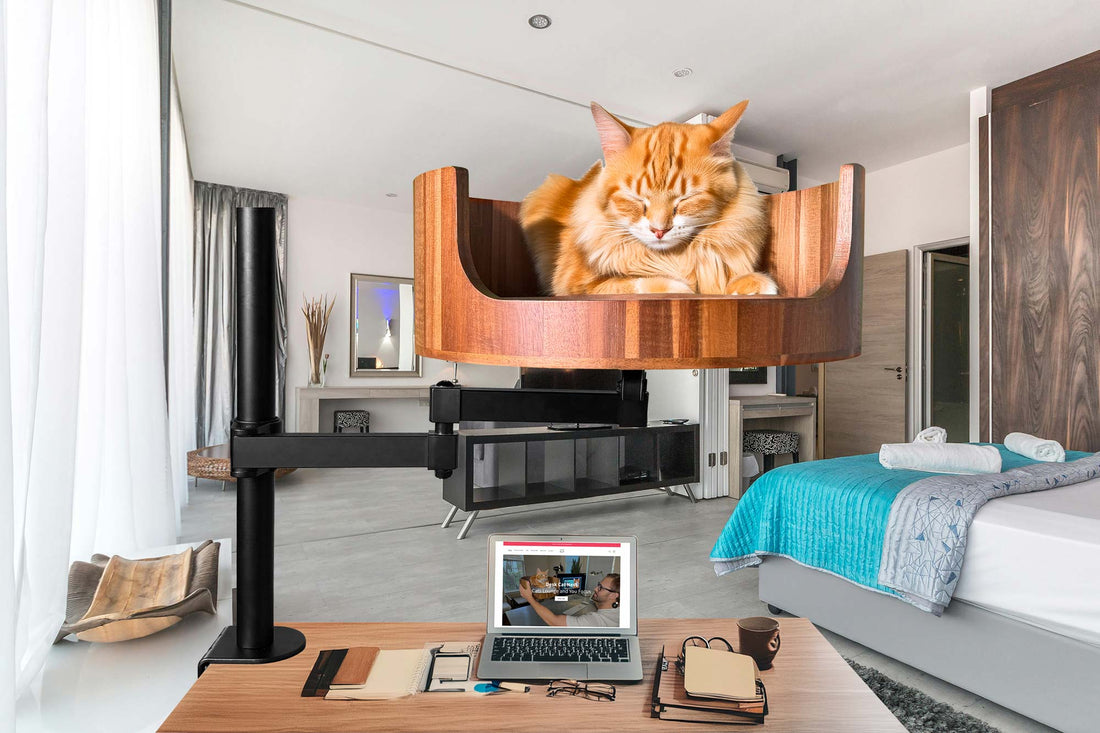
Why Cat Drools: Understanding Feline Salivation Issues
Share
Are you a proud cat owner who has noticed your feline friend drooling excessively? If so, you are not alone. Cat drooling is a common issue that can be caused by a variety of factors, from dental problems to anxiety. In this article, we will delve into the reasons why cats drool and how you can address these salivation issues to ensure your pet's health and well-being.
Understanding feline salivation is crucial for pet owners in order to provide proper care for their beloved cats. We will explore the different causes of cat drooling, including dental issues such as gum disease and tooth decay, as well as behavioral reasons such as stress or excitement. Additionally, we will discuss how to identify when drooling is a cause for concern and when it is simply a harmless quirk of your cat's unique personality. By the end of this article, you will have a better understanding of why cats drool and how to best care for your feline companion's oral health.
1. Cat drooling can be caused by various factors such as dental issues, stress, excitement, or medical conditions.
2. Excessive drooling in cats may indicate an underlying health issue that requires veterinary attention.
3. Regular dental care, including teeth cleaning and check-ups, can help prevent drooling in cats.
4. Cats may drool when they are relaxed and comfortable, especially during kneading or purring.
5. Understanding the reasons behind cat drooling can help pet owners provide appropriate care and seek timely veterinary assistance when needed.
Causes of Excessive Drooling in Cats
Excessive drooling in cats can be caused by a variety of factors, including dental issues, oral pain, respiratory problems, and even certain systemic diseases. Dental problems such as periodontal disease or tooth decay can lead to increased saliva production. Cats with oral pain from conditions like stomatitis or abscessed teeth may also drool excessively. Respiratory issues, such as infections or foreign objects stuck in the throat, can cause cats to drool as well. Additionally, systemic diseases like kidney disease or liver failure can lead to excessive drooling in felines.
Behavioral Reasons for Cat Drooling
In some cases, cat drooling may be a result of behavioral issues rather than physical health problems. Cats may drool when they are feeling anxious, stressed, or overstimulated. This could happen during grooming, petting, or in unfamiliar environments. Cats may also drool as a response to certain scents or tastes that they find particularly appealing. Understanding your cat's behavior and triggers can help you determine if their drooling is caused by a behavioral issue.
Treatment Options for Cat Drooling
Treatment for cat drooling depends on the underlying cause of the issue. If the drooling is due to dental problems, a visit to the veterinarian for a dental cleaning or extraction may be necessary. For oral pain or inflammation, medications or pain management techniques may be prescribed. In cases of respiratory issues, treatment may involve antibiotics or removal of foreign objects. Systemic diseases may require more extensive treatment and management. It's important to consult with a veterinarian to determine the best course of action for your drooling cat.
Preventing Cat Drooling
Preventing cat drooling involves maintaining good oral hygiene, providing regular dental cleanings, and monitoring your cat's overall health. Brushing your cat's teeth regularly and feeding them a balanced diet can help prevent dental issues that may lead to drooling. Keeping your cat's environment stress-free and providing regular check-ups with a veterinarian can also help prevent behavioral or health-related causes of drooling. By being proactive and observant, you can help keep your cat happy and drool-free.
Frequently Asked Questions
Why does my cat drool?
There are several reasons why your cat may be drooling. It could be due to contentment, excitement, dental issues, or even motion sickness. If your cat's drooling seems excessive or is accompanied by other symptoms, it's best to consult with your veterinarian for a proper diagnosis.
Is it normal for cats to drool?
Some cats may drool occasionally, especially when they are relaxed or happy. However, if you notice a sudden increase in drooling or if it's accompanied by other concerning symptoms, it's important to have your cat examined by a veterinarian.
Can the Desk Cat Nest help with my cat's drooling issue?
While the Desk Cat Nest is not specifically designed to address drooling issues in cats, providing a comfortable and secure space for your cat to relax can help reduce stress and promote overall wellbeing. If your cat's drooling is related to anxiety or discomfort, the Desk Cat Nest may help create a calming environment for your cat.
In conclusion, providing your cat with a cozy and comfortable spot to rest, such as the Desk Cat Bed, can help alleviate stress and anxiety, which are common causes of excessive drooling in cats. With its plush cushioning and secure design, the Desk Cat Bed offers a safe and soothing environment for your feline friend to relax and unwind. Additionally, the elevated positioning of the bed can help improve airflow and reduce any potential choking hazards for cats prone to drooling. Investing in a Desk Cat Bed not only provides a practical solution for managing your cat's drooling problem, but also ensures their overall well-being and comfort.



















































